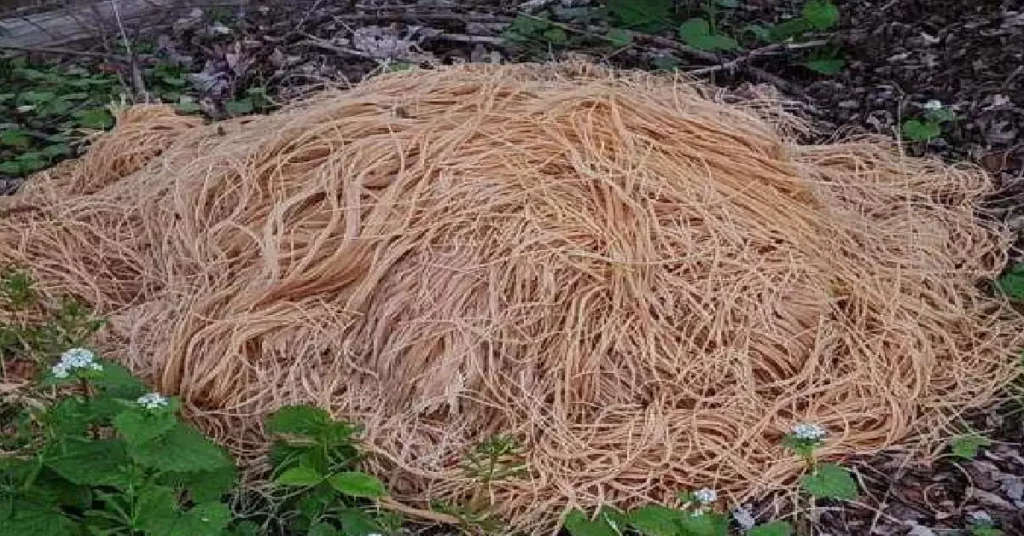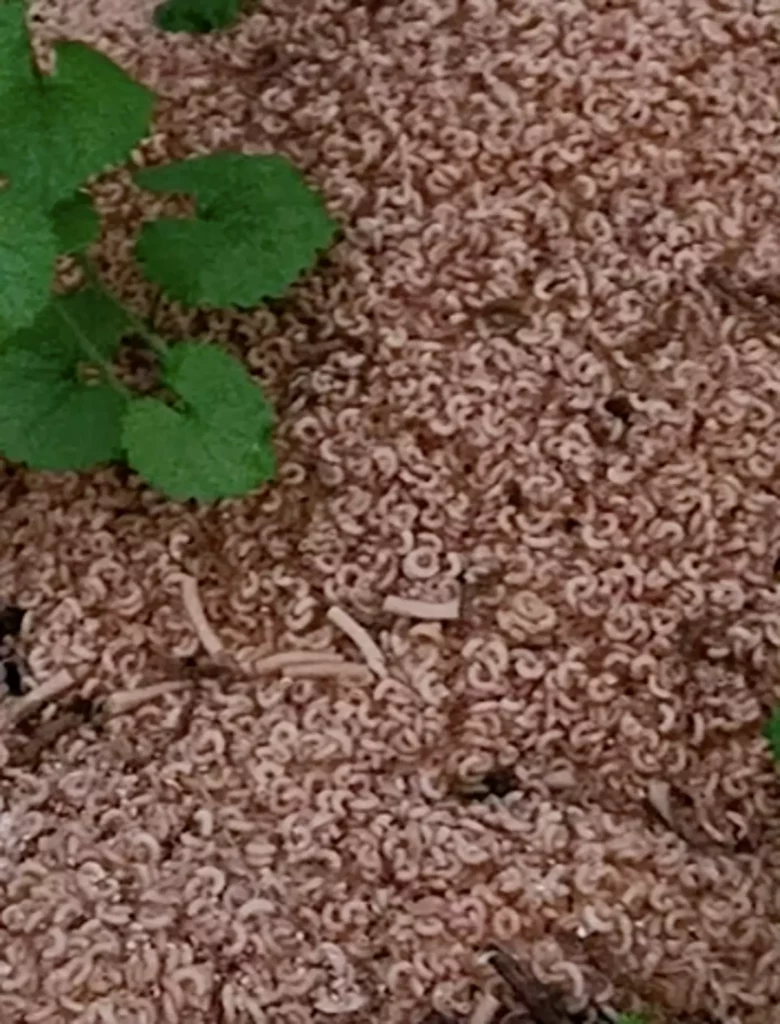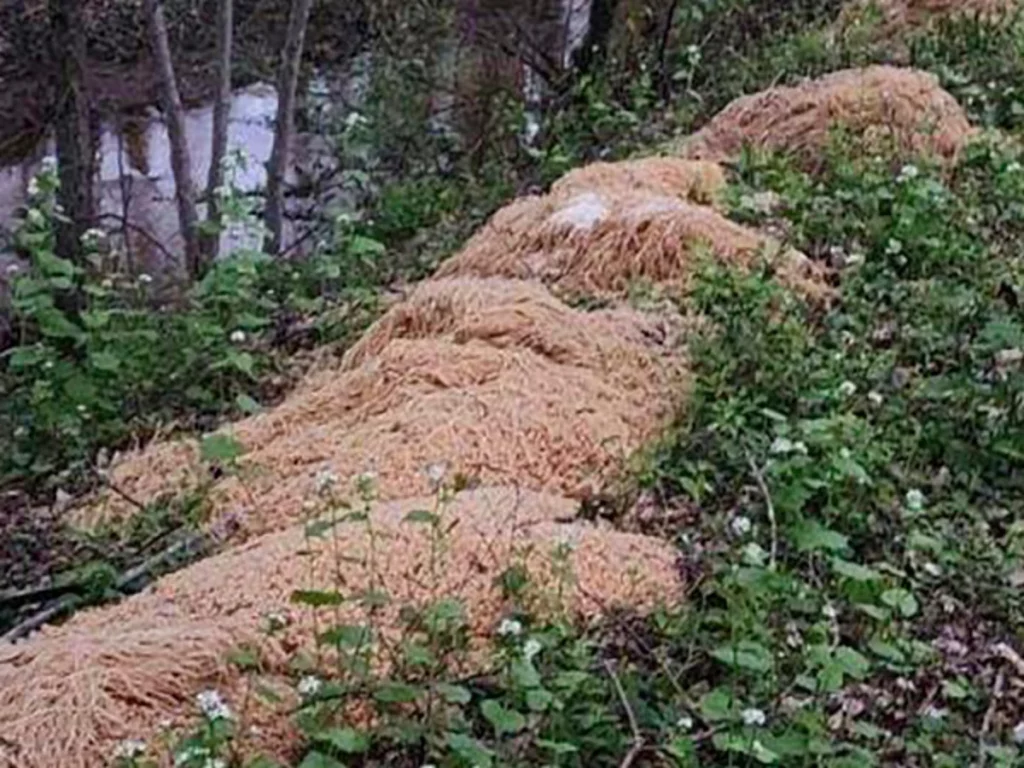Five hundred pounds of cooked pasta were dumped in the woods of New Jersey, and the mystery behind it has finally been solved.
The Italian dish was discovered along the banks of Iresick Brook in Old Bridge by a local resident out for a walk.
It was a mix of cold spaghetti, ziti, and elbow macaroni – all served without any sauces.
The unusual discovery quickly went viral, leaving many people puzzled about its origin.
The discovery, which rapidly grabbed headlines and ignited a wave of online speculation, prompted numerous questions.
Who would leave such a huge pile of pasta in the woods?
For weeks, these questions remained unresolved, leaving the community bewildered and the internet buzzing with theories.

Many people have turned to social media to speculate about how it ended up there.
One person humorously commented, “It was the pasta’s expiration date.”
Joining in, another person quipped, “It was a tribute to a famous Italian chef who sadly ‘pasta’ away.”
“I hope they can unravioli this mystery – it’s pasta joke!” a third commented.
Photos of the pasta pile quickly spread across social media, depicting mounds of noodles scattered across the forest floor, shimmering in the sunlight.
The scene was surreal, looking more like a surrealist painting or a modern art installation than an illegal dumping site.
Though it may seem amusing, dumping pasta by the river poses a serious environmental problem.
Nina Jochnowitz, who posted the unusual discovery on Facebook, explained to The Philadelphia Inquirer: “You might think, ‘Who cares about pasta?’ But pasta has a pH level that can affect the water stream.”
“The water stream is crucial to clean up because it feeds into the town’s water supply… it was one of the quickest clean-ups I’ve ever witnessed here.”
After some sleuthing, it appears that the mystery has finally been solved.

Local residents believe the pasta came from a nearby home, which was put up for sale after the owner recently passed away.
Neighbor Keith Rost told NBC News, “I think he was just trying to clear out his parents’ house, and they probably had a lot of pasta stockpiled from Covid.”
It’s believed he might have removed the pasta from its packaging and discarded it by the stream.
The pasta was dry and uncooked when it was dumped, but it became al dente due to the rain, giving it the appearance of being cooked before disposal.

The town’s mayor, Owen Henry, has since urged residents not to dispose of their unwanted items by the river.
He told NBC, “Old Bridge is very rural, so we do have people who illegally dump a lot of material in isolated areas. We’re constantly out there cleaning up.”
Henry adds that it “makes no sense” and is unfortunate, as many items can be taken to recycling centers.
The revelation about the pasta’s origin brought relief to the community and offered a bizarre yet logical explanation for the strange sight.
The incident, however, ignited a broader discussion about food waste and illegal dumping.
Many local residents voiced concerns about the environmental impact of leaving such a large quantity of food to decompose in a natural area.
Although pasta may not pose the same environmental risks as other types of waste, the incident underscored the broader issue of how communities manage excess food and waste disposal.





